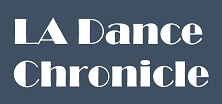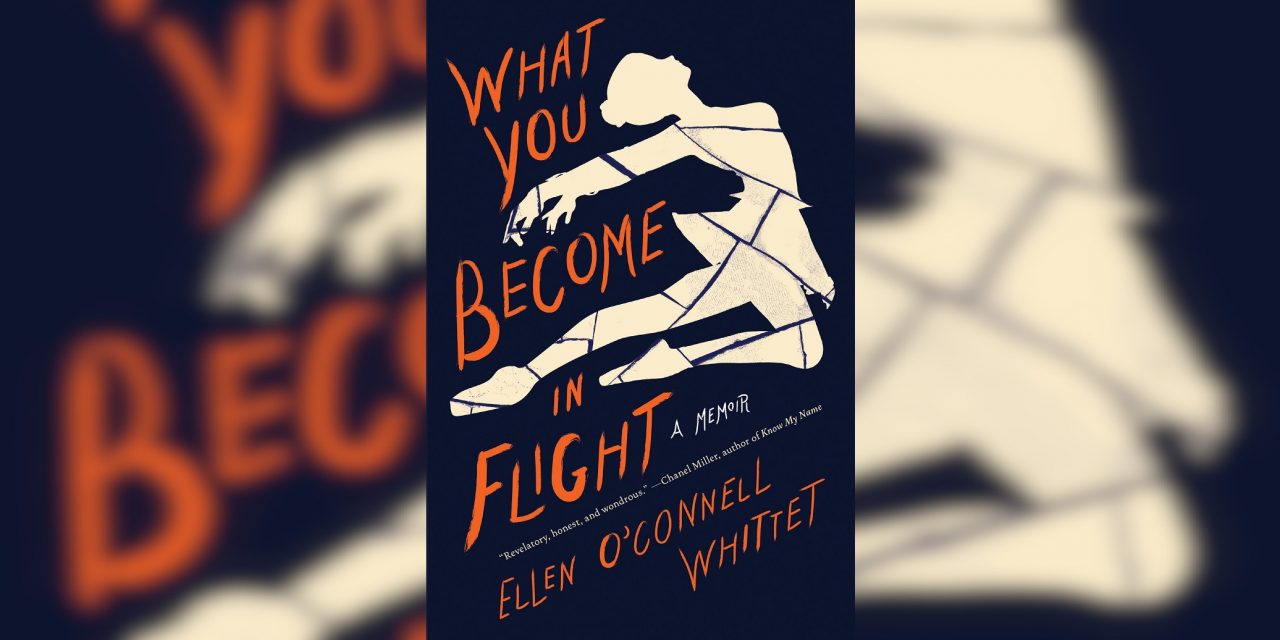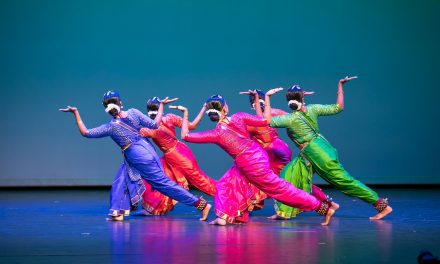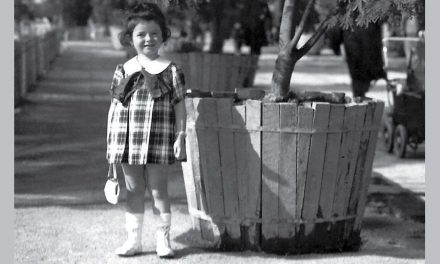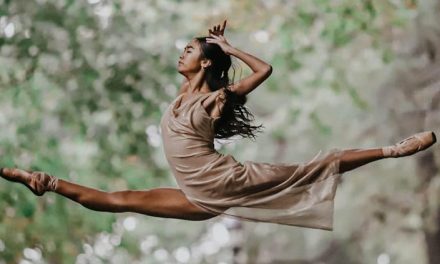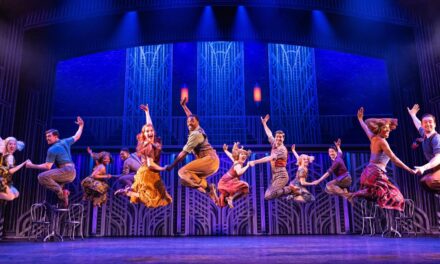I read Ellen O’Connell Whittet’s shimmering memoir, What You Become In Flight, in just under two days. The book weaves together personal family history, the internal hole left as the result of an unfulfilled ballet career, and the lingering and sometimes unrecognizable effects of sexual assault. We are guided through Whittet’s unraveling and subsequent redemption as a writer and mother. This narrative rope is then woven again, through the lens of feminism, into the layers of our paternalistic and misogynistic society, amplified by ballet, but in no way siloed within it.
Whittet’s prose is evocative, poetic, and in many instances, revelatory. While her writing about dance is glorious, putting you in her shoes, it is the way that she connects the culture of ballet to the larger systems of patriarchy and women’s place in society that I found riveting. Issues of identity and the lasting impact of sexual assault are connected to the loss of autonomy that occurs when one is brought up within a world that devalues consent and the voices of women. The reclamation of both her physical being and her powerful voice is inspiring, and one envies the students that are now the recipients of her emotional and intellectual clarity.
I spoke with Ellen O’Connell Whittet on the shattering experience of creating an identity as a ballet dancer and then leaving it behind, the ongoing challenges that face the dance world, the writing process, and her adult life as a writer, professor, and mother.
Whittet currently resides in her hometown of Santa Barbara, with her husband and daughter and is expecting her second child. She is a continuing lecturer in writing at the University of California at Santa Barbara. We spoke over Zoom with Santa Barbara’s blue skies in the background. Like all dancer conversations, ours quickly shifted from topic to topic, jumping quickly between shared mentors, experiences, and traumas.
A recurring theme in the book, and of dance memoirs in general, is how dancers navigate the loss of identity experienced when one stops dancing. One of the more heartbreaking revelations in Whittet’s story is the loss of her cousin, also a serious ballet dancer in her youth, to drugs and an eventual overdose. It felt, in her storytelling, as if the loss of ballet led to her cousin’s downfall. I asked her about it.
We all have these older dancers that we idolize when we are children. There are some older dancers, even from my ballet studio, that I still sometimes will look up like, whatever happened to her? She was incredible! My cousin was a little bit that way to me. She was a really passionate dancer and really dedicated to it. I think because of the timing of when she stopped dancing; She had a bad breakup. She had this dental surgery that sort of ended in her 20-year opiate addiction. I equated all of these things. I don’t know what she would have said, whether those things were related or not. But to me, the toehold I had in her life was ballet. I didn’t understand the other things. I was too young to know what a breakup felt like. I was too young, you know, to even have had dental surgery. I was too young to know about addiction. But I just thought, wow, she lost ballet. And then she lost everything. Like this [ballet] is something I have to hold on to so tightly because my life depends upon it.
I was just bowled over to learn that I had been telling myself that narrative even as an adult without ever examining what that meant, and what power that gave ballet over her life, my life, and my family’s imagination. Anyway, I was really determined to not die, you know, to have a life after ballet.
This is an ongoing conversation in the dance and ballet worlds and is explored in several new memoirs and critical pieces. Alice Robb’s Don’t Think Dear; On Loving and Leaving Ballet and Chloe Angyl’s Turning Pointe also explore the ways that the tunnel vision of ballet training exacerbates the overwhelming sense of loss that dancers feel when they leave. Their training and ballet culture has led them to believe that a life dedicated to anything other than performing with a top company is an abject failure. It is a failure of both imagination and education. Few ballet students actually become professional dancers. Leaving them embittered and broken is harmful to both the individual and the institution. The challenge is formidable and is leading to a reckoning within the industry.
For Whittet, life after ballet meant that she turned her focus first to healing from a series of devastating injuries that were exacerbated by a serious eating disorder, healing from the eating disorder itself, and to academia, earning an MFA in writing from Sarah Lawrence College. She shifted all of the discipline and rigor that she depended upon as a dancer to her writing. This is a skill she imparts to her own students.
Here’s a holistic education, you can choose a lot of different career paths with what we’re teaching you, which is a skill set, it’s not just a trade. I mean, it’s a way of thinking, it’s a way of moving, it’s a way of living in relation to your body in the world.
A way of living in relation to your body in the world. The first half of Whittet’s book explores how little she actually existed in relation to her body in the world. She starved it, abused it, and dissociated from it. There are scenes that are not surprising to dancers and probably horrifying (or perhaps cliché confirming) to non-dancers; a foot stretch that ends in a broken bone, contests among dancers to determine who could survive on the smallest amount of food, dancing through immense pain, and the giving up of the autonomy of your body to those in charge. When she was dropped from a lift while in rehearsal as a college ballet major, the injury to her back was serious enough to send her on a different path altogether. She changed majors and went to France to find her path and her new vocation.
Healing from anorexia is an ongoing process. Identifying the sources and separating the igniting factors is a part of that. Ballet is often identified as the source of eating disorders and disordered eating. However, ballet exists within the greater society and may just be a fertile ground for it to flourish. I asked Whittet if she thinks that ballet caused or simply fertilized the disorder; would this particular struggle have been a part of her life without ballet?
I think it’s possible, I think that there’s certainly a personality type that they [eating disorders] correlate with, especially with anorexia. I’m the oldest daughter and a perfectionist in a lot of ways. The writing could have been on the wall with whatever I did. Society at large certainly supports that interpretation. I grew up in diet culture. I’m only now starting to see the ways that that is still in my head. I mean, not even just the eating disorder, but diet culture, and how pervasive that is. I don’t entirely blame ballet, I think it’s a perfect storm for a lot of people.
This is an essential point that some of the other books and think pieces do not address fully. Ballet exists within society and Whittet’s journey with the remnants of her ballet challenges did not end when she left the ballet world. `
I remember when I decided that I wanted to have a baby. And it was not as easy as I thought it would be. I’ve talked in other places about doing IVF. There’s so much anti-inflammatory diet kind of messaging around fertility stuff. When I started to do some of that, because I think you know, IVF is a last resort for everybody, it was like a switch just flipped. I was like, I’m really good at this. I could eat an anti-inflammatory diet. I then realized I’m just not eating, you know, like, I’m just eating apples and chicken breast. This is disordered eating again. It’s just in so many places hidden as wellness. Ballet might be a really perfect place to put perfectionist first daughters who have these tendencies, but it’s, it’s really a chicken and egg situation for a lot of us, I think.
Whittet has written eloquently about her experience in the delivery room. The tentacle reaches of malnutrition, lack of consent, and the loss of body autonomy stay with us as we leave the ballet world and invade every aspect of our experience as women.
I had to fill out a health form when we started fertility treatments. The doctor asked me how long my period had stopped when I was anorexic. When you don’t have a regular period until you’re 21, which is how old I was, your body shuts down what we call non-essential processes, which includes ovulation. It’s like, wow when I was 16 years old, I was doing something that would affect me in my 30s. It would never have occurred to me that it would have any kind of long-term effect, because, you know, nobody, NOBODY talks about it.
The other thing that no one talks about, or hasn’t yet talked about, is how the lack of consent in dance creates women who question their essential right to say no, even after they leave that cloistered world. The other major thread of this book, one which I found captivating, was Whittet’s fight to overcome a severe snake phobia. The interconnected traumas of ballet’s abusive practices, a sexual assault, and the fear of losing control exacerbated their powers, dominating Whittet’s life after a sexual assault. The snakes became a literal representation of the danger she faced every day, those harms that young dancers face continue to color their world long after they leave the dance studio.
Our entire lens through which we view our lives is informed by the way the world treats us. The physical manifestations of gender, race, and ethnicity. That’s all our bodies. I mean, our bodies are our identities and our experiences.
The process of writing is where we both began and finished our conversation. The book seems to have been written over the space of many years, right as she moved away from ballet into a new world, almost as if moving through the stages of grief. Indeed, she says that it took over ten years.
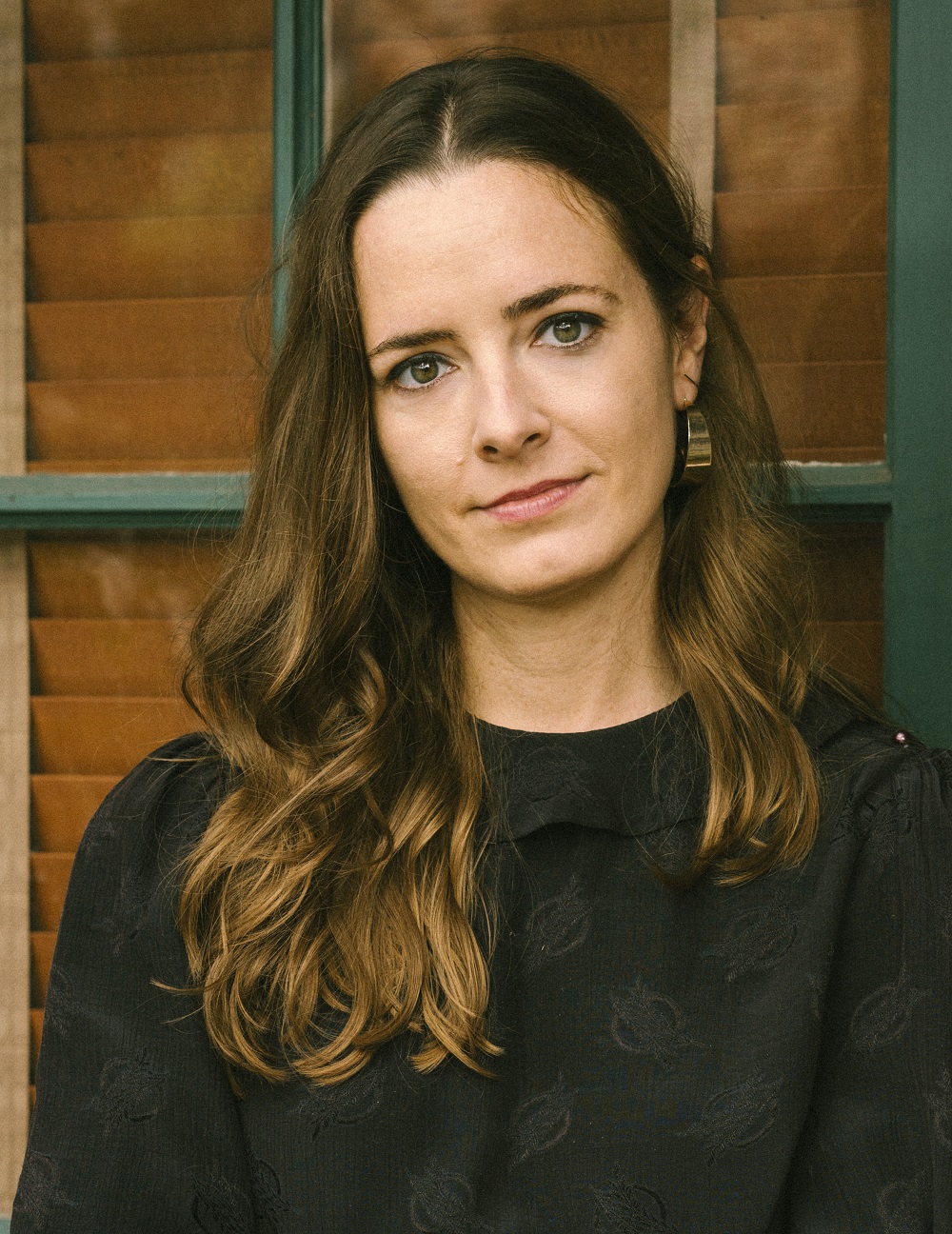
Author Ellen O’Connell Whittet – photo by Leela Cyd
I started writing, things that I thought would go in this collection or memoir, probably in grad school. I don’t think anything I wrote in grad school, with the exception of maybe the prologue, ended up going into the final draft. It feels like I just kept writing and replacing old material that felt irrelevant or like a tangent. That time period was maybe 10 years, maybe a little bit less. And then, when I got an agent for this book, it sort of gave me a new lease on the material, having to articulate and write reverse outlines and things, you know, I was able to see where the gaps were, and the story I was telling, and what my actual goals were when someone asked me to voice them and write them down. So that was really helpful. I think from the time I signed with an agent, it may have taken me two years to finish it. And a lot of it ended up being new material. There was some stuff from what I had originally sent her. So it’s hard. It’s always hard to answer that question, but somewhere between, I don’t know, 10 years and two years.
She is currently working on a new novel, also based on the body, but not on ballet. And focusing on teaching, bringing all of what she has learned, from the rigors to the heartbreak to her classroom.
I think it makes me a more feminist teacher, which I think has to do a lot with how I see hierarchies, both in the wider university, but also in my classroom. I also think I really like doing daily exercises and practicing. Like, I just think a lot about what would writing be like if we treated it like a dance class where we did whatever the writing equivalent is of pliés before we did anything else every single day.
Of course, we ended our discussion on dance. Whittet’s daughter is just under three years old, discovering the beauty of pure movement. And she loves it. Whittet dances with her, and is cautiously optimistic about her continuing.
She takes ballet now, and she loves it. And we go every Saturday morning to a park where she puts on her little leotard and ballet skirt and her ballet shoes. It’s really fun to watch her. Like loving the same things that I loved, she loves dancing in a group she loves when they start running around in a circle, and they all impersonate an animal or, you know, have to dance on their tiptoes or something she loves being in the group of girls and running around and being in a pack. I think her imagination is better because of ballet, she’s really good at taking direction, you know, auditorily and doing it. Her vocabulary is expanding because of ballet. So I just see all the positive things that ballet can bring in a new way that I just had not thought about in years. And I think it’s actually made me more pro ballet than I would have been. We’ll have to see but now I actually feel very on the side of ballet, that it can be a positive force. We just have to be vigilant about everything we love.
Featured Image: Book cover – What You Become In Flight – by Ellen O’Connell Whittet – courtesy Melville House
